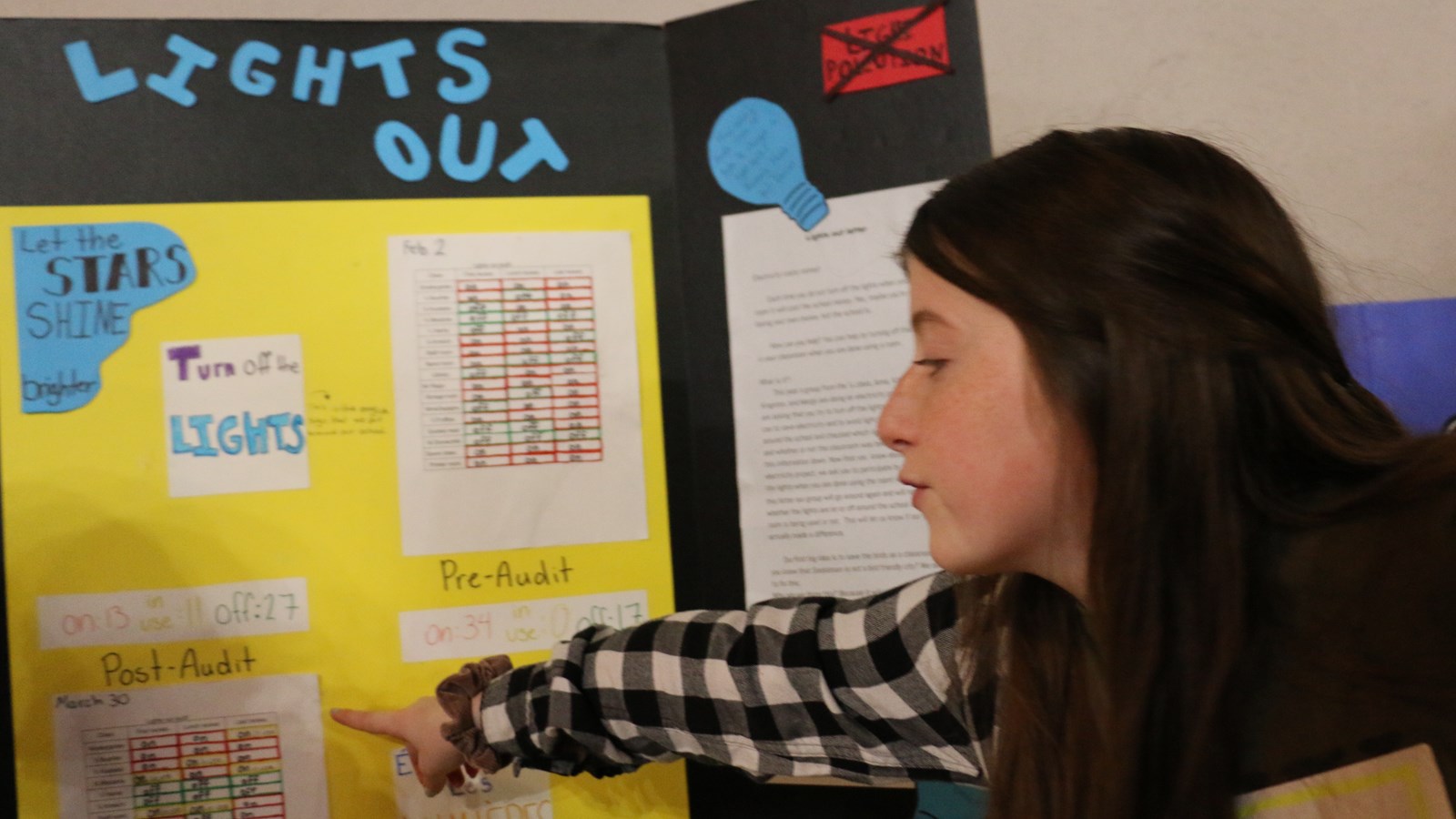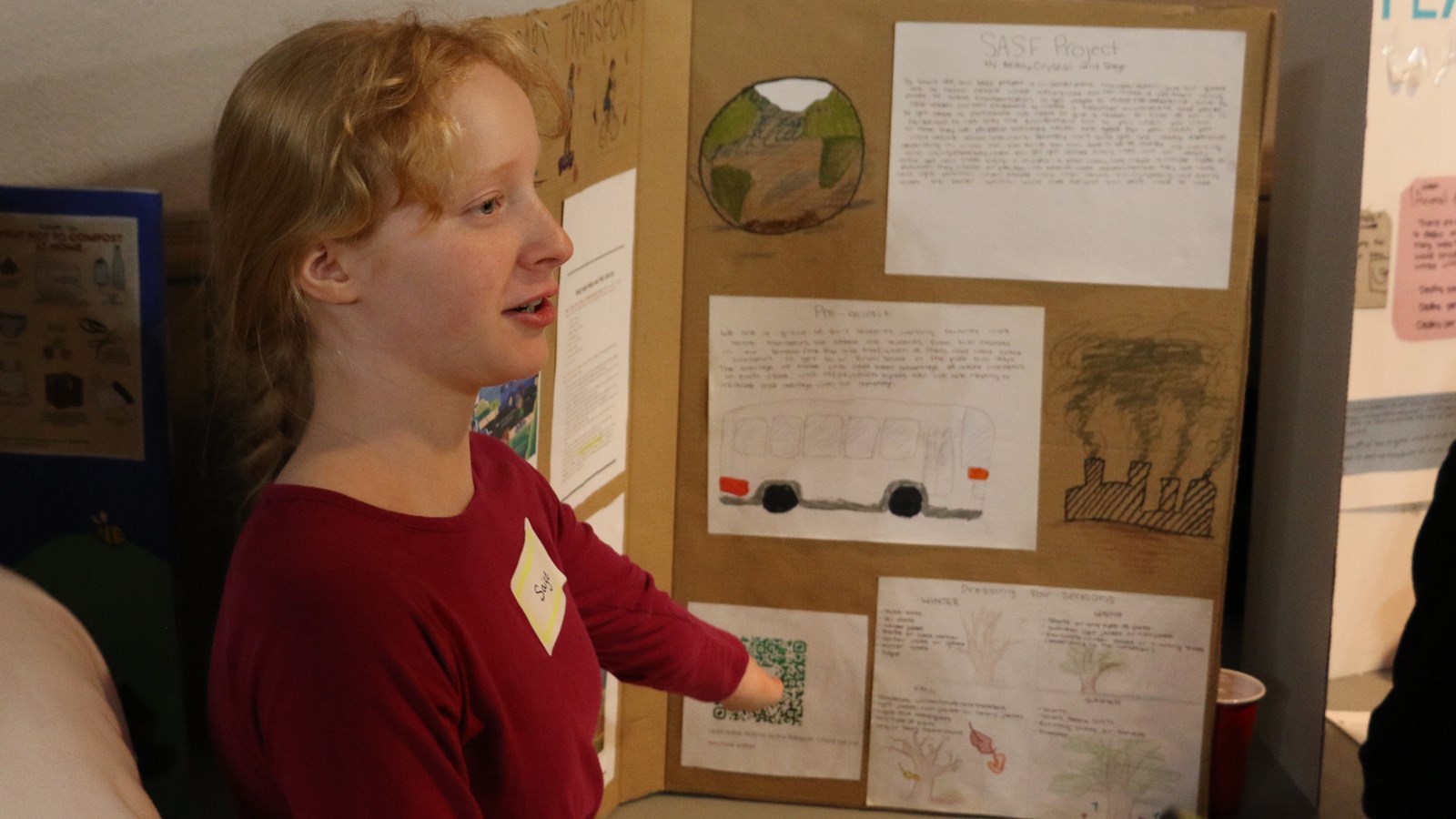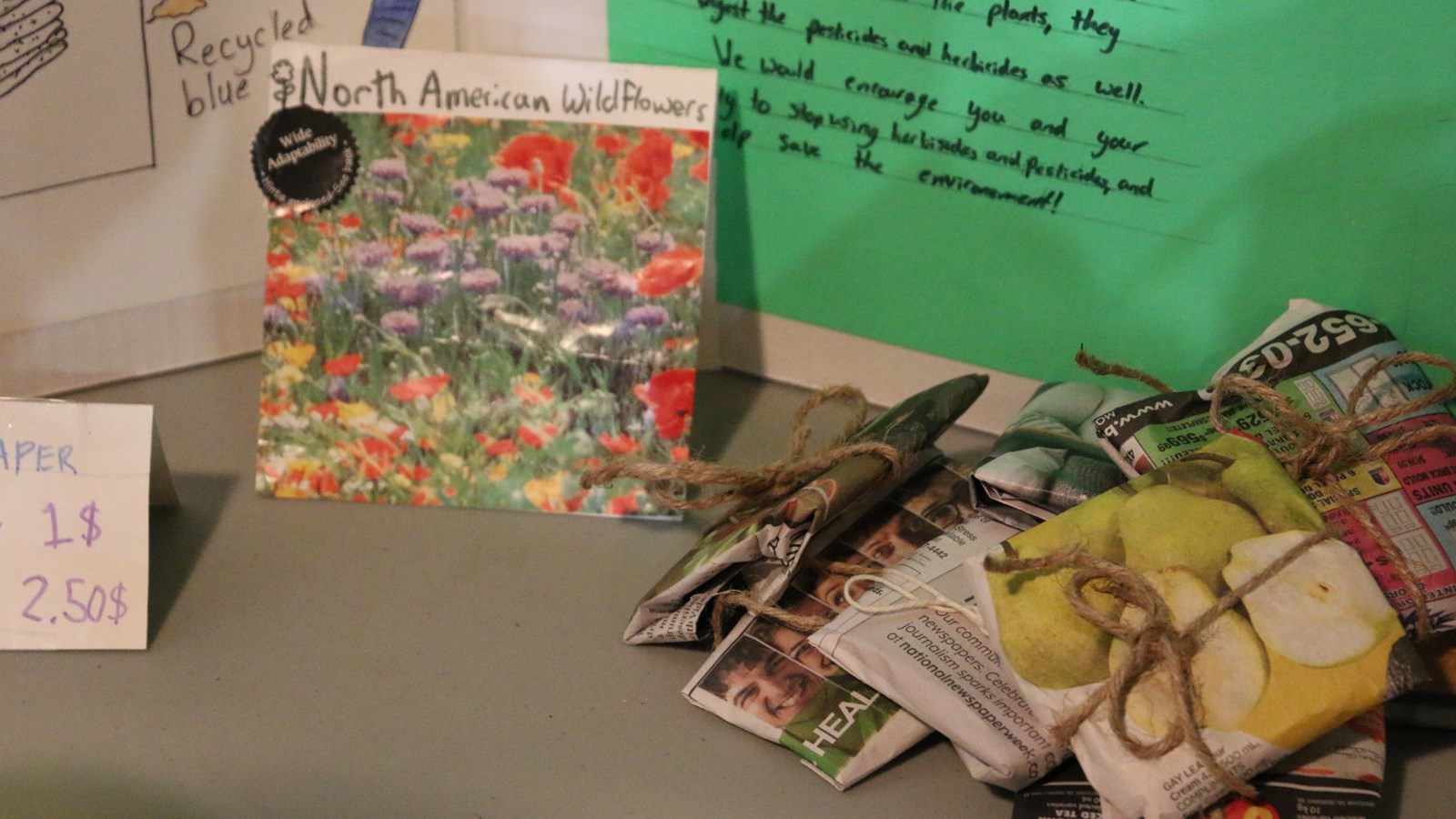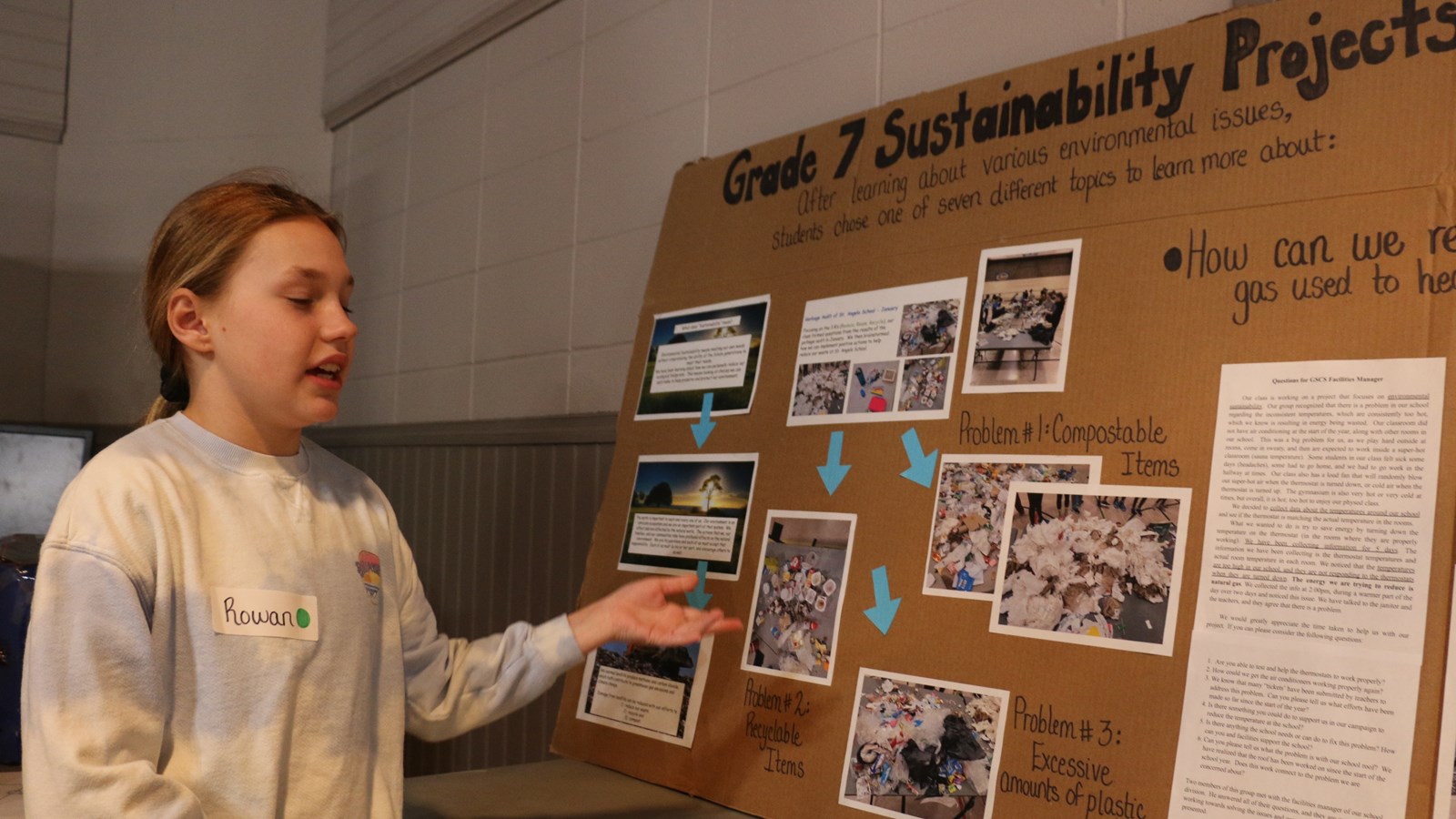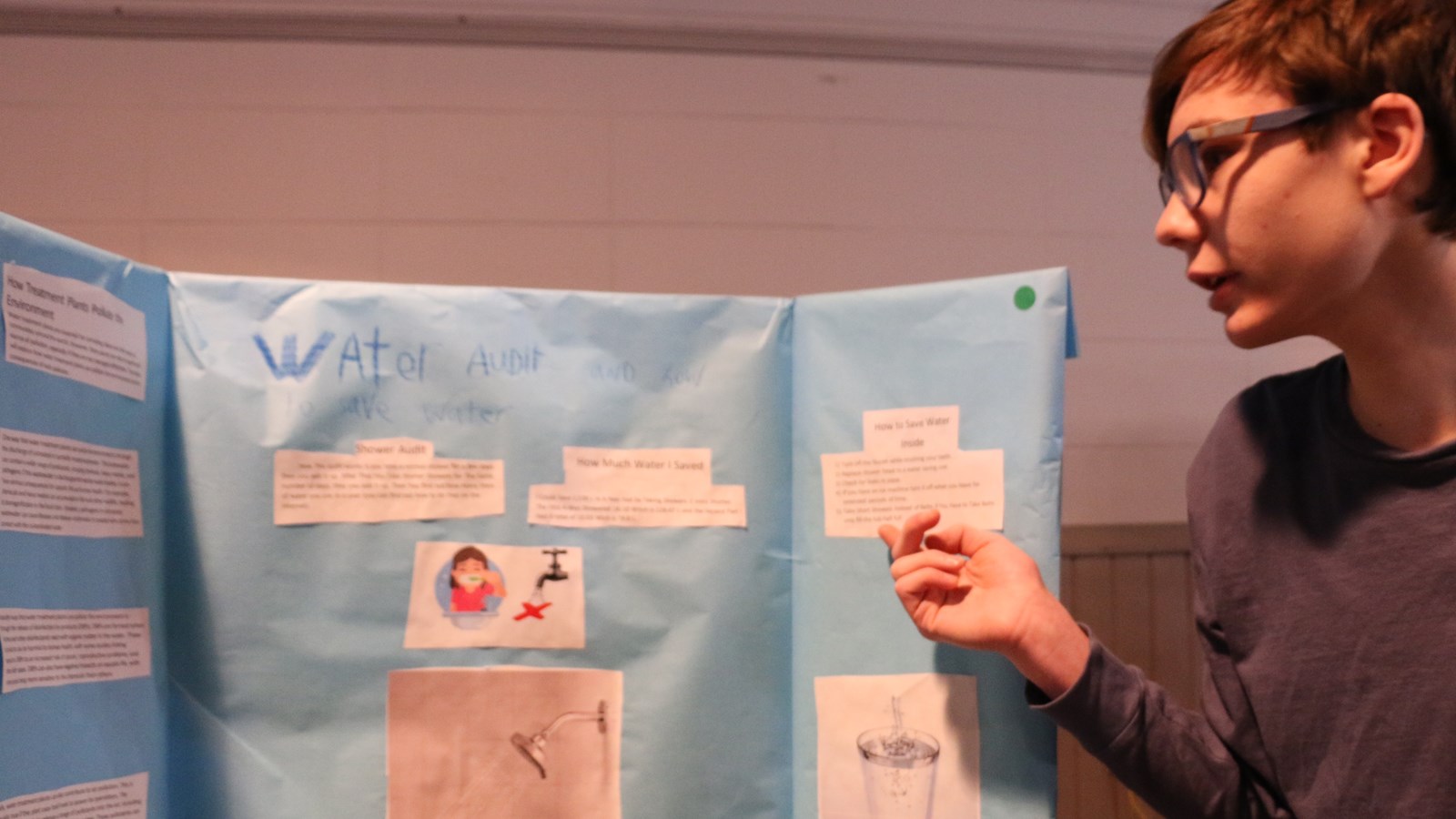Student Action for a Sustainable Future

The Student Action for a Sustainable Future (SASF) program involves students from both Greater Saskatoon Catholic Schools and Saskatoon Public Schools in projects that reduce classroom, school, and household greenhouse gas emissions. The program entered its tenth year and has engaged over 3,200 students to date.
Projects result in positive sustainability benefits in the areas of energy, water, waste, food, biodiversity, and transportation. The student showcase provides a chance for students to tell their own environmental success stories, highlight the results of their projects and demonstrate the powerful environmental leadership of Saskatoon youth to achieve sustainability.
For more information visit Saskatoon.ca/StudentAction.
Projects from GSCS schools
St. Mark School - Grade 5
This year our Grade 5 students at St. Mark School learned all about what sustainable development is and how it connects to climate change. We learned all about biodiversity, and pollution, water pollution, air pollution and plastic pollution. Students researched what their carbon footprint is and how they can reduce it through simple yet effective means. We built 15 birdhouses, grew our own lettuce and tomatoes, built a four-tier vermicompost for the classroom and each day in March we held a public service announcement over the intercom to educate the rest of the school with what we learned.
St. Angela School - Grade 7
The Grade 7 students at St. Angela School learned about what environmental sustainability is, what actions in our world cause greenhouse gases, and they held a school-wide garbage audit. Students then formed questions about the information they had learned and from the audit results. Groups were formed, which focused on the areas of recycling efforts, plastic packaging alternatives, ways to pack a waste-free lunch and how to start a compost program at the school. They also inquired further about how beef consumption creates methane emissions, and how we can reduce our use of energy consumption at school. The students researched their topics, and created presentations, videos and posters to educate our school about what they have learned. We will complete our post-garbage audit to collect data on the difference we were able to make in our school.
École St. Paul School - Grade 7/8
Our SASF projects focussed on ensuring that our school and community is bird friendly. You might think, then, that we all worked on projects relating to biodiversity. Not true! We wanted to explore how positive action in a variety of domains (light and energy, active transport, and yes, biodiversity) impacts the birds and other animals and plants. In projects ranging from minimizing bird window strikes to encouraging safe biking routes, from turning off the lights when leaving a room to backyard naturalization, our class researched, explored, campaigned, and connected our actions to the impacts we have on the world around us. Our backyard naturalization group has been collecting paper recycling from our classroom to make plantable seed paper, one of our light and energy groups has been encouraging people to change to LEDs, and one of our active transport groups is designing a stand-up comedy routine to raise money towards their no-idling campaign.
St. Augustine School - Grade 7/8
Students in Grade 7/8 at St. Augustine School had the opportunity to tackle a variety of projects based on their interests and skills. The biodiversity group looked at support our community wildlife through the creation of houses that offer shelter, protection, and food for wildlife. Their specific focus was on the bird and bee populations. An energy consumption group tackled the "5 light bulb" project. By switching out light bulbs in their home with more energy efficient LED bulbs, students were able to directly tackle conservation efforts for energy. Another group focussed on waste management: this included the creation of a classroom compost bin to manage food scraps from lunch. Some of the other interest areas included a community library box to give new life to books and encourage reading, a solar panel project that explored the viability of utilizing solar panels at our school, along with various hydroponic setups to explore the growth of plants and food.
St. Kateri Tekakwitha Catholic School - Grade 8
The Grade 8s at St. Kateri split into several groups focused on reducing waste, saving energy, reducing litter, and cleaner transportation. The waste groups added compost bins in some classrooms and made presentations for educating the school on how to reduce, reuse, and recycle plastics. Another group targeted littering in the park, first through surveys and then through poster reminders around the park. Some students aimed to reduce light use at school, using the sticker system to encourage light usage only as needed to save power. Another group innovated compostable cutlery that carries a plant seed. Transportation groups investigated typical transportation modes to and from school while another group studied electric buses as an option for the City. Lastly, a group investigated water use through at home water audits then worked to change their behaviours to reduce water use and launched an education campaign to encourage different ways students can conserve water use at home.
Information is sourced from Saskatchewan Environmental Society that coordinates Student Action for a Sustainable Future.


